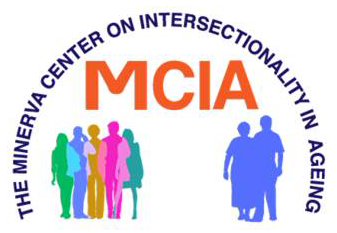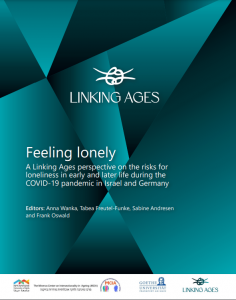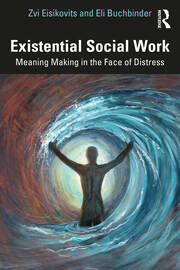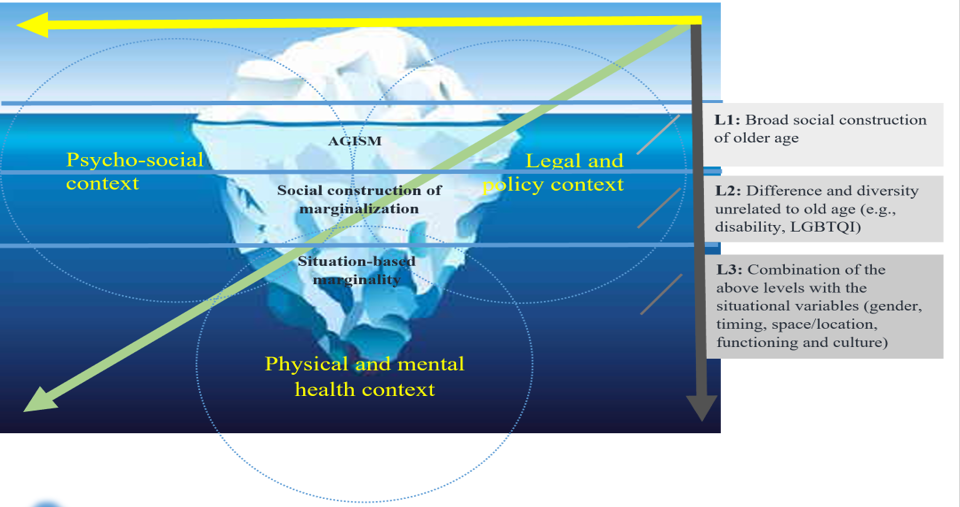New special issue
The content and structure of this special issue were heavily influenced by a workshop that took place in September 2022, titled “Emerging Knowledge on Lifetime Abuse in Old Age: An Intersectional Perspective.” The workshop was sponsored by the Minerva Center on Intersectionality in Aging (MCIA) at the University of Haifa and was led by Drs. Tova Band-Winterstein, Zvi Eisikovits, and Sabine Andresen. The articles included in this issue were written by a group of international scholars who participated in the workshop. These experts from different disciplinary fields of violence research provide comprehensive theoretical and methodological insights into the studies of lifetime abuse and its impact.
Publications
Special issue
Journal of Elder Abuse & Neglect (Vol.36, Iss.2, 2024)
“Exploring Older Women’s Perspectives On Lifetime Abuse”
Lifetime abuse has recently received increased attention. However, the impact of such abuse on old age is less studied. This age group is marginalized due to the social construction of gender, ageism, stigma, and oppression. Being an older woman intersects with additional forms of marginality and, therefore, understanding and alleviating the experiences of older women call for an intersectional and life course perspective. In September 2022, the Minerva Foundation funded an international study group on “Lifetime Abuse: Emergent Issues” which was initiated by the Minerva Center of Intersectionality in Aging at the University of Haifa, Israel. This current special issue, which examines selected aspects of older women’s experience of lifetime abuse, is an outgrowth of that work. 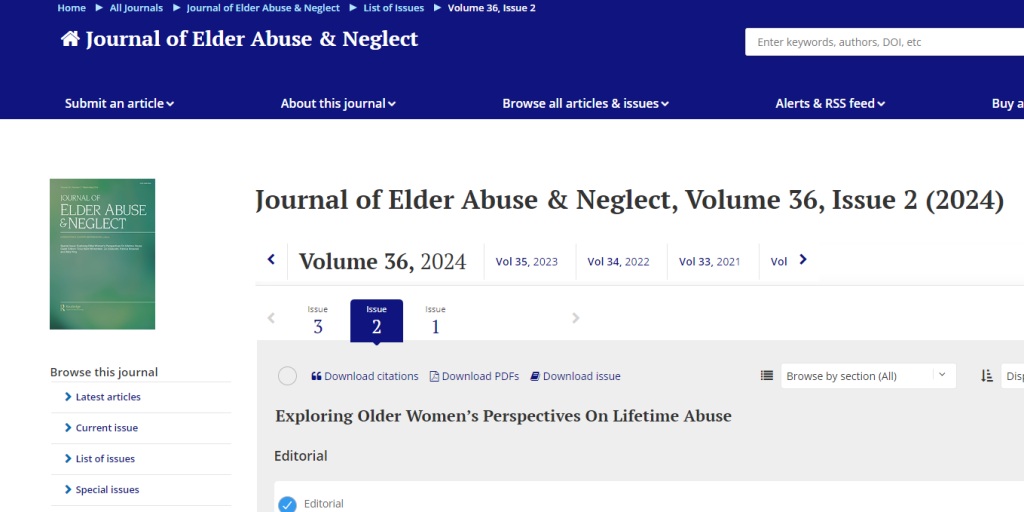
Financial exploitation and mental health among Holocaust survivors: the moderating role of posttraumatic symptoms
Gali H. Weissberger, Moshe Bensimon, Amit Shrira
Objectives: We examined whether anxiety and depressive symptoms associated with self-reported history of financial exploitation (FE) are more pronounced among Holocaust survivors (HS), especially those with high-level posttraumatic stress disorder (PTSD) symptoms. Design: Self-report questionnaires completed online via Qualtrics. Setting: An online-based survey conducted in Israel. Participants: A community-based cohort of 137 Israeli older adults born prior to 1945 were included in the study sample. HS (n = 61) were participants who reported living in a European country occupied or dominated by Nazi or pro-Nazi regimes between 1939 and 1945. Groups were further subdivided into survivors with low or high levels of PTSD symptoms (≥31 on the PTSD Checklist; PCL-5). Measurements: Questionnaires assessed FE history, posttraumatic symptoms (PCL-5), depressive symptoms (PHQ-9), and anxiety (GAD-7). Age, education, self-rated health, and non-Holocaust lifetime adversity were also measured and included as covariates. Results: Hierarchical linear regression models revealed that relationships between FE and depressive and anxiety symptoms were significant only among survivors (p = 0.005 and p = 0.008, respectively). The interaction between PTSD symptom level group and FE was also significant for both depressive (p = 0.007) and anxiety (p = 0.012) symptoms, such that survivors with PTSD who reported FE had significantly greater symptoms of depression and anxiety compared to all other groups. Conclusions: Findings suggest that the experience of FE may be particularly impactful among survivors who continue to struggle with posttraumatic symptoms related to the Holocaust. Future studies may consider examining whether findings are relevant to other groups with PTSD.
Feeling lonely. A Linking Ages perspective on the risks for loneliness in early and later life during the COVID-19 pandemic in Israel and Germany
Minerva_Whitepaper
You are invited to read a White Paper by Anna Wanka, Tabea Freutel-Funke, Sabine Andresen, Frank Oswald.
An interdisciplinary group of researchers from both Israel and Germany came together in December 2021 to exchange and discuss findings on the effects of the COVID-pandemic on children and older adults in Israel and Germany.This white paper provides a selection of empirical research findings, policy recommenda-tions and identified blind spots for future research with respect to a “linking ages” perspec-tive. The authors emphasize on loneliness in early and late life from a specific social science perspective and based on a selected set of definitions.
weblink *
Existential Social Work. Meaning Making in the Face of Distress
You are invited to read a new book by Zvi Eisikovits, Eli Buchbinder.
This book is a theoretical and practical guide for mental health professionals who wish to utilize existential principles in their social work and clinical practice.
Existential questions concerning life situations, such as anxiety, suffering, choosing, authenticity, are at the heart of the craft of any helping profession.
The book aims to confront students and practitioners with the need to be simultaneously philosophical and experiential in their clinical approach.
weblink *
 “Sex weakens”: sexuality as a source of conflicts between aging homosexual couples
“Sex weakens”: sexuality as a source of conflicts between aging homosexual couples
You are invited to read an article by Gil Barbi and Prof. Tova Band Winterstein published in Dorot magazine on conflicts (including sexual) between homosexuals in old age.
__________________________________________________________________________________________________________________________________________________________________________
 Prof. Yaacov G. Bachner, kindly responded to our call and shared some of his intersectional work with us.
Prof. Yaacov G. Bachner, kindly responded to our call and shared some of his intersectional work with us.
Prof. Bachner investigates older adults with disabilities and diseases, of both early and late on-set.
His research often focuses, in accordance with one of Intersectionality’s principles, on the psychological and subjective dimensions.

